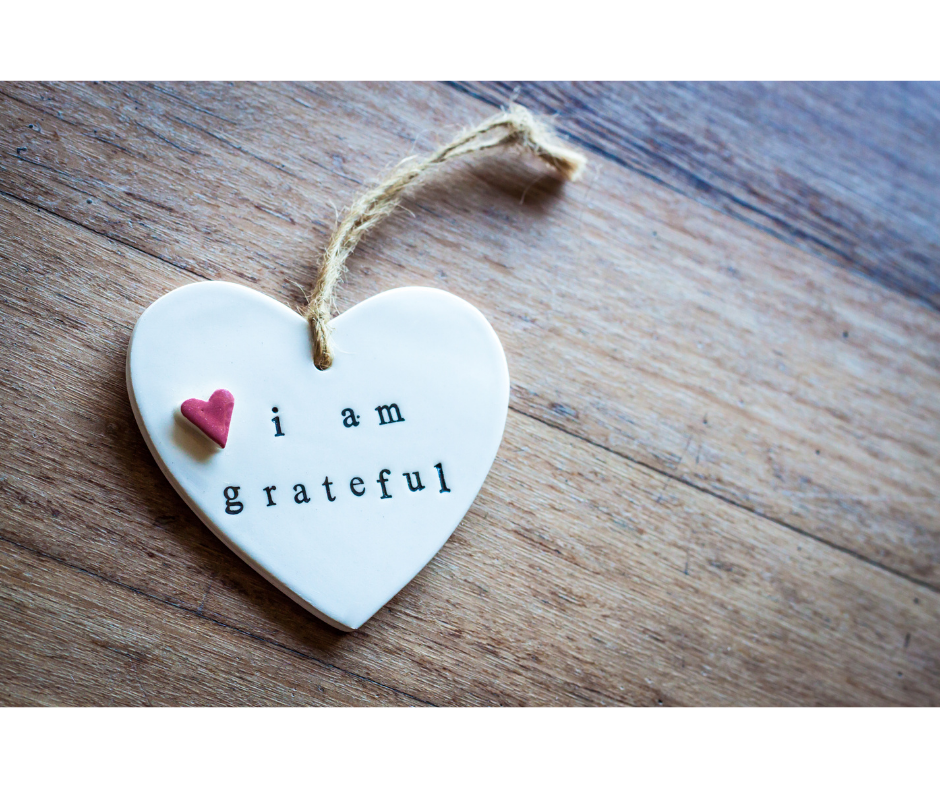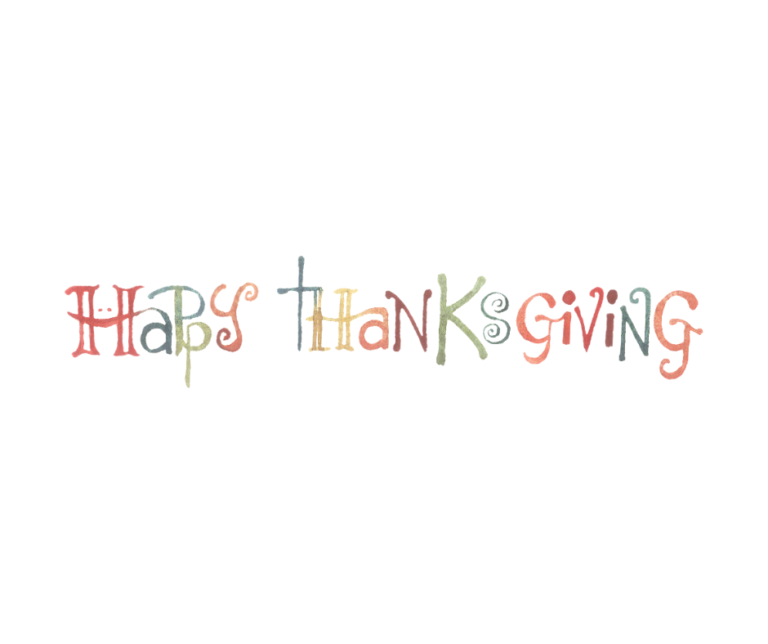Gratitude

Last month, I had a sobering anniversary. October 10 marked 20 years since my Functional Neurological Disorder symptoms began. It was a bit of a rough day as I reflected on the past twenty years. They haven’t been easy, that’s for sure. If you share my FND diagnosis, I don’t have to tell you that. Confusion, depression, despondency, hopelessness, and self-contempt marked many of those years.
Tomorrow will be Thanksgiving in the United States, a day to recognize and be grateful for our blessings. It will be a different kind of Thanksgiving for many of us in this time of the COVID-19 pandemic. After a potential exposure for my daughter and son-in-law, our family has chosen to isolate this year. I believe that this will be the first Thanksgiving that my husband and I will celebrate alone. In spite of the difficulties presented by this year’s circumstances, I know the sadness of this year will make future years sweeter. Sometimes we need to experience pain to fully appreciate joy.
I am so thankful that I am recovering from the darkest days of my Functional Neurological Disorder. As I’ve reflected on my twenty years carrying the diagnosis, I’ve recognized that I’ve finally come to the point of gratitude for many lessons my FND has taught me. If you aren’t there yet, I understand! It’s a difficult disorder to live with. Feel free to skip this post if you are still in the middle of your darkest days. Before you go, just know that it’s possible that better days are ahead. There is hope, even if you haven’t found it yet.
5 Reasons I'm Grateful for my FND
1.
The first thing I’m thankful for is all of the wonderful people I’ve met because of my FND. Ever since I started my blog, I have made connections with others who also have Functional Neurological Disorder and those who treat it. Without my FND, I wouldn’t have the joy of friendships made around the world.
2.
FND has taught me to appreciate and embrace my humanness. Before my illness, I thought I could do anything. There was no stopping me. Limitations? What are those? They didn’t apply to me.
Now I am acutely aware of my needs and restrictions. My energy and time are precious resources. I don’t squander them. I am careful to prioritize the things that are important to me and let the rest go. It’s easy for me to say no to things that are not for me. I am more at peace. Inner peace is precious to me.
3.
Because of my FND, I have made friends with my body. Before my diagnosis, I had very unforgiving ideas about what a good body was. I put a lot of pressure on myself to watch my weight and to exercise rigorously to achieve a certain ideal.
Now my definition of a good body is one that works. I try to keep an eye on nutrition to keep my body functioning well. I stay active because it feels good and I know it’s important to maintain function. The experience of pleasure as I eat and move is much more important to me now than achieving my previous unrealistic expectations.
My body has learned to trust me. It knows I will listen and meet its needs.
4.
Functional Neurological Disorder has brought a deeper appreciation for things many people take for granted. I often feel a surge of joy as I hike, overwhelmingly grateful for legs that can walk. Mundane tasks like cooking, cleaning, laundry, and running errands feel a little lighter because I’m thankful that I can now perform them effortlessly. When I first went into assisted living at the height of my FND symptoms, I thought that maybe it would be nice to have others do all of these tasks that had become so difficult for me. It wasn’t. Autonomy is a gift I don’t take for granted.
5.
Finally, I’m grateful for a brain that can change. It hasn’t been easy, but I’m thankful for the experience. Five years ago, I couldn’t walk, had difficulty talking, and had debilitating cognitive problems. How amazing is it that I now can function? I will never take that for granted! I will also never stop working towards building a healthier brain that can direct my body to do the things that I want to do.
Thanks for reading! I’m thankful for you!


Hi there, Where do you find the “happy” serotonin, dopamine, oxytocin, etc. to put into your body to help you feel more relaxed?
I would love to know. I take a lot of good supplements but not those. I have to rely on Klonopine and Quentipine for sleep and to help keep things calmed down but have brain fog then. Would love to keep up with you. Love, Karen
Hi Karen,
I think that the best way to increase our “happy” neurochemicals is through healthy lifestyle. What activities make you feel good? Those things are key to building up a healthy nervous system. Here’s a good article with some suggestions. https://www.goodtherapy.org/blog/10-ways-to-boost-dopamine-and-serotonin-naturally-1212177
If you haven’t taken my free class yet, it’s one of the things that I discuss. You can sign up here!https://maxpac.activehosted.com/f/3
All the best to you,
Max
Thank you so much for this blog. I have only recently been diagnosed with FND ain’t September 2022 along with being diagnosed firstly with both type 2 diabetes and hypothyroidism in September 2021. It was then discovered in April 2022 that I was actually type 1 and now Insulin dependant. This has been a tough couple of years and being a single mother to a child that has complex special needs, it is safe to say that life has been very stressful. I’m currently unable to drive and as a community midwife, it has meant that I may have to look at other options, even to the point of a new less stressful career, I feel I am grieving for my life. At present things are mostly good and when I have those good days I feel like such a fraud. I’m still currently on the sick and have had to turn to applying for benefits, something I never thought I would have to do again. I sacrificed so much to get to be a midwife and at present I am trying to convince my team leaders and bosses that I can still be a good midwife. I understand that they feel that as the job is very stressful both mentally and physically that it will cause me to relapse, this is something that I cannot deny as we know how unpredictable FND is. At present I’m in a crossroads in my life as to what to do with my career. I had thought of the possibility of retiring due to ill health and therefore applying for my NHS pension early, ( I’m 53). However I have now been told that FND would probably not qualify as a good enough reason to have my application approved! My bosses have also said that if I came back to work it probably wouldn’t be as a midwife, I never trained as a nurse, the thought of something else fills me with dread and to add insult to injury, I would also have a massive drop in pay and my grade as a top band 6! If I apply for ill health retirement, then as soon as the letter is received by management, they can terminate my contract with immediate effect regardless if I don’t receive the pension either! My apologies for rambling, I’m wondering if there are others that have faced similar dilemmas. I am keeping myself positive in mind and looking at this life change as a positive step towards something else that can be just as rewarding. I do my gratitude everyday and meditation and have done distracting techniques when FND symptoms arise. I’m also having counselling too.
I realise it is nearing your Thanksgiving so I wish you well in your Thanksgiving celebrations. Dawn Williams.
Hi Dawn,
It sounds like you are really struggling. Losing my career was definitely the biggest loss I have suffered with my FND. It was a tough decision to leave, but I still believe it was the best choice for me. Whatever you decide, know that life holds many possibilities for fulfillment.
Wishing you all the best,
Max
Hi Dawn,
My name is Dawn also and I also live in the UK. I was diagnosed with FND in 2020 after I had surgery for Colon cancer. I am really sorry to hear of all the challenges you are been challenged with. I know that it can be very challenging. I would like to keep in touch with you if that’s okay. I don’t know anyone in the UK that is experiencing FND . I’m also unaware of how to keep in touch. I look forward to hearing from you. Keep smiling 😊 in spite of 💐🙏🏾.
Maybe Max can help us keep in touch.
Hi Max, I came across your blog from browsing on the main FND website. Thanks for your blog. I have been wondering how does life go on with FND. It’s nice and inspiring to here that in spite of all challenges different and ever changing challenges that FND present, that one can still endeavours to live their best life in the midst of and inspite of all the challenges.
Blessings 🙏🏾
Dawn
Hi Dawn,
I’m glad you’ve found it helpful! Yes, life goes on with FND and I’m very grateful for the life I have now. It can still be challenging, but I continue to learn how best to manage my FND so it doesn’t interfere too much with what’s important to me.
Wishing you the best,
Max